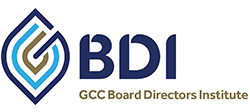 This year has seen a number of females appointed into senior positions
This year has seen a number of females appointed into senior positions
The top echelons of GCC office saw a landslide of change this year as a tide of women clinched C-level jobs in Saudi Arabia.
Three women were appointed to top jobs in the Kingdom’s male-dominated financial sector in the space of just one week in February, in what marked a historical moment for both the industry and wider society.
Sarah Al-Suhaimi is now the chair of Saudi Arabia’s stock exchange, the Tadawul; Rania Nashar became the CEO of Samba Financial Group; and Latifa Al-Sabhan has been appointed chief financial officer of Arab National Bank.
Al-Suhaimi is now chairing the largest bourse in the Middle East. She is also CEO of the investment-banking unit at National Commercial Bank (NCB) Capital.
“It’s wonderful to see women recruited into such senior roles. It provides the role models young women need to realise that they too can land jobs in top executive positions in the Gulf,” said Jane Valls, executive director of the GCC BDI.
The historic placements come in line with a goal outlined in the Saudi Vision 2030 reform plan to increase the participation of women in the workforce from 22 per cent to 30 per cent.
Carla Koffel, executive director of the corporate governance body Pearl Initiative agreed that having women in high profile positions is a step forward for the region. “[Having women] on the board is about enabling a company to make good decisions. Good decisions are critical for a company being able to anticipate what it needs to do to be successful,” she said.
“In order to make good decisions, the organisation needs to have a diversity of perspective being brought into the decision-making process,” Koffel explained.
Women in the GCC make up just over half of the students enrolled in higher education, according to the report ‘Women’s Careers in the GCC: The CEO Agenda’, released by the Pearl Initiative. But only 38 per cent make it to the workforce, with just 17 per cent sitting on corporate boards. A mere 12 per cent of chief executive positions are made up of women.
However, companies with strong female leadership deliver a 36 per cent higher return on equity, according to the index provider MSCI.
According to John St Valery, founder and CEO of The Links Group, a diverse board enables sustainable company growth and enhances stakeholder value. He said, “It would be naïve to suggest that that any sector, private or public should not rigorously pursue the highest international standards. It’s important to continuously strive to highlight the importance of women in the workforce, and to dispel myths many may have about the role of working women in the Arab world.”
He added, “Having owned, operated and also worked on gender diverse boards in both profit and not-for-profit sectors, I can attest to a [gender] balance being one that clearly reflects output and performance.
“There is no place for gender or any other bias in the workplace – in my view, women should not succeed because of percentage allocations, but rather on the merit of their work.”
Raeda Al Sarayreh, regional director of government affairs at consulting firm CH2M and a member of the 30% Club GCC Steering Committee, said that women on boards impact the talent pool and diversity throughout the organisation and stakeholder organisations, helping to accelerate “gender parity” and usher in a more inclusive culture.
She added, “The good news is that regional governments are very serious when it comes to accelerating gender diversity at all levels including board level.”
Al Sarayreh said the 30% Club GCC [a body which endeavours to increase the number of women on executive boards to 30 per cent], is working on a number of projects that will be launched this year with the aim of increasing female representation on boards.
“We are working on launching a formal mentoring programme where C-Level executives mentor women to be board-ready. We are also working with partners on finalising a database of board-ready women, making it easy for companies and organisations find women who are suitable for their boards, depending on their needs.”
However, Al Sarayreh believes that biggest hindrance to seeing more local women clinch C-level positions is the overall business culture within organisations. She said, “Company leaders must drive a shift towards inclusive cultures that empower women to serve on boards.”
Tara Rogers, co founder of Dubai-based Reach Mentorship, agrees that further strategies need to be employed by those in top corporate positions. “It is the CEOs who have the business incentive and power to drive the policies that can strengthen the pipeline of female talent through to senior levels, and thereby build more competitive and well-governed organisations across the region.”
Credit : Alicia Buller – Internal Editor / Journalist



COMMENTS ARE OFF THIS POST